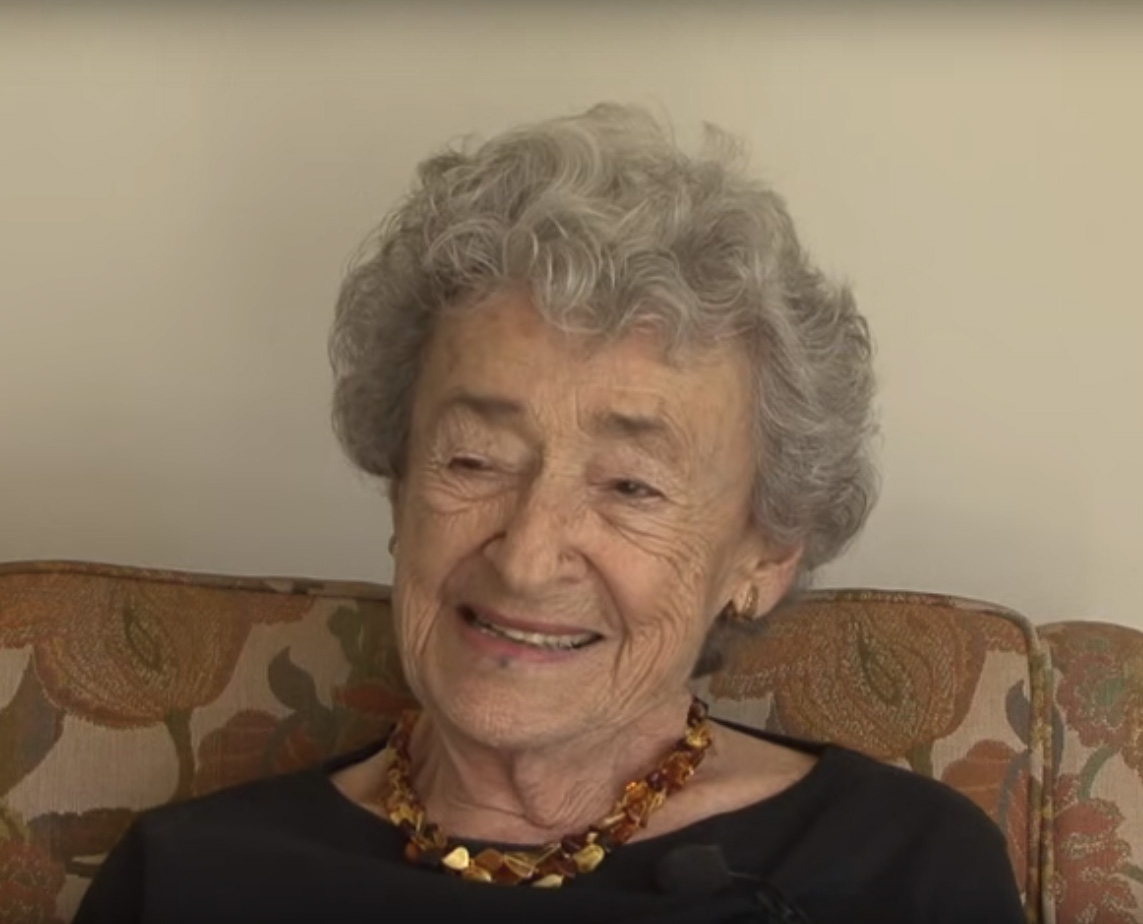On November 17, 2017, our friend and Manhattan Project veteran Lilli Hornig passed away at the age of 96. A chemist, she worked on plutonium chemistry and explosives at Los Alamos, NM during World War II.
Lilli was born in Czechoslovakia in 1921. She and her family moved to Berlin in 1929. But after Hitler’s rise to power, her father, who was Jewish, was threatened with imprisonment in a concentration camp. In a 2011 interview with AHF, Lilli recalled, “He spent several weeks sleeping at friends’ houses so he wouldn’t be found, and he left for America.” Lilli and her mother joined her father in the USA a few months later.
After deciding at a young age that she wanted to be a chemist, she received a Bachelor’s degree in chemistry from Bryn Mawr College in 1942 and a Master’s degree in chemistry from Harvard in 1943. That same year she married Donald Hornig, a doctoral student in chemistry. Lilli and Don were married for almost seventy years, until Don passed away in 2013.
George Kistiakowsky recruited Don to come work for him in the explosives division at Los Alamos. Don was initially hesitant to accept an unspecified job in an unspecified place. Lilli explained their recruitment into the Manhattan Project: “Kistiakowsky called. With a few curses, which was very much his style, he said, “Dammit, you come out here.” Don brought that news home, and that sounded pretty interesting to me and did to him too, obviously.”
At Los Alamos, Lilli conducted research on plutonium chemistry. She recalled being bluntly fired from the chemistry department: “There was one other woman in the division…Then they got the first results from Hanford with the bad news about plutonium-240, which was much more active than 239. The first response was to fire both of us instantly. I complained a bit about that. They were worried obviously about reproductive damage. I tried delicately to point out that they might be more susceptible than I was; that didn’t go over well. But I guess I wasn’t very good at handling things like that.” She transferred into the X Division under Kistiakowsky, and worked on measuring shock fronts from potential implosions.
Lilli remembered, “It was a fabulous time in our lives. We were so young. There were lots of other people who were our age with very responsible jobs, massive social life—we’ve never had a busier one. Everybody got together for dinners or hikes or to go camping or riding. There was a theater group Don was in and I did scenery for them, and there was lots of music.”
Don spent the night before the Trinity Test famously babysitting the bomb while reading a book. Lilli had not been formally invited to witness the test, so she and several other scientists drove up Sandia Mountain to watch. She recalled the test: “Vivid colors like violet, purple, orange, yellow, red, just everything. It was fantastic. We were all kind of shaken up.”
Lilli described learning of the atomic bombings of Japan: “There were all the papers with the headlines, so we knew it had gone off. That was an odd mix of feelings. I mean, certainly some triumph, and the destruction was just so incredible. I think we’ve all been a little haunted by that over the years.”
After the war, Lilli earned a PhD in chemistry at Harvard. She served as chairwoman of the chemistry department at what is now Trinity Washington University. A strong advocate for women scholars, she spoke out forcefully against hiring discrimination against women scientists. Lilli founded Higher Education Resource Services, which conducts research into discrimination against women and challenges sexism. She also became the first director of the Committee on the Education and Employment of Women in Science and Engineering at the National Academy of Sciences, and served on the Committee for the Equality of Women at Harvard.





